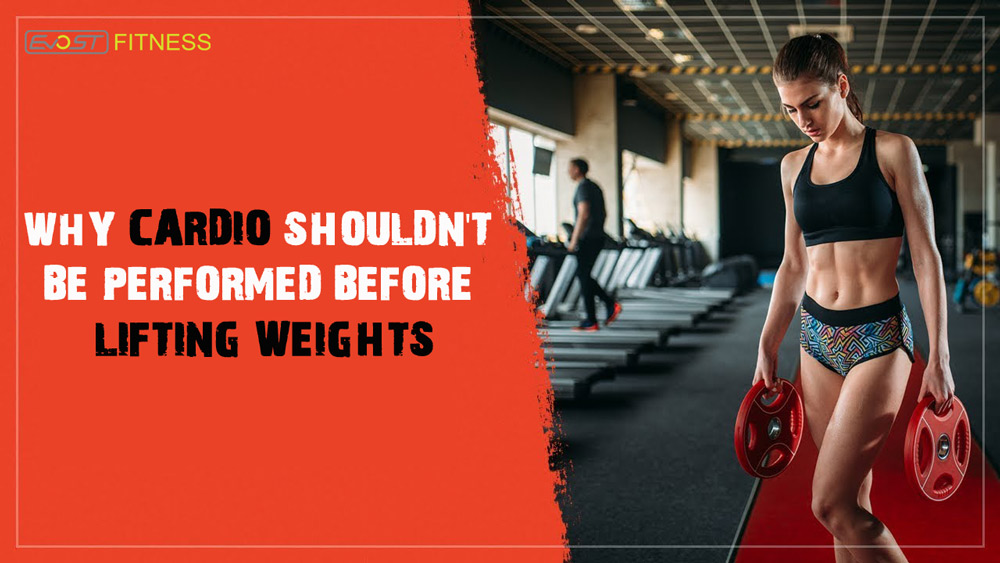
It's no secret that warming up is an important part of your daily exercise regimen. A brief five to 10 minute warm-up period helps stimulate blood flow while also supplying working muscles with the oxygen and nutrients they need in order to operate at a high level. The numerous benefits of warming up include boosting your metabolism, which can help contribute to fat loss, and improved workout performance. A "warm-up" routine shouldn't include high-intensity bouts of cardiovascular activity, though. If you're planning on lifting weights, you need to limit the amount of cardio training you perform before hitting the weight room.
1. Prolonged Recovery Time
Workout recovery time varies depending on several physiological factors, but the exhausting combination of cardiovascular activity and weight training can increase the amount of time it takes you to fully recover. Increased recovery time can impact several facets of your life, such as sleep and workplace efficiency. Eliminating cardio altogether or performing aerobic exercise on days separate from weightlifting workouts will ultimately enable you to gain maximum benefit from your fat loss regimen.
2. Improper Dieting
Some weight-loss fads require complete self-restraint from consumption of carbohydrates, like breads and pasta. If you're currently committed to a carb-free diet, you need to limit cardio training to an absolute minimum, especially before lifting weights. Your body uses carbohydrates for fuel during moderate to high-intensity aerobic exercise. If your body is operating as carbohydrate deficient, you will naturally burn alternative forms of energy, such as muscle mass, and deplete your ability to gain strength from weightlifting.
3. Imbalance in Workout Intensity
The difference between energy exerted from moderate to high-intensity cardio activity and weight training is significant. The combination of high-volume weightlifting and intense bouts of aerobic exercise can actually decrease the efficiency of your central nervous system. There is an imbalance of heart rate acceleration during cardio in comparison to lifting weights, which diminishes your body's natural ability to operate at a high level. You should not perform any type of high-intensity exercise if you have a preexisting heart condition. Consult your physician before making a commitment to an intense workout regimen.
4. Depreciation of Muscle Mass
Your goal of achieving a specific level of fat loss within a certain time frame might not be unrealistic, but the manner in which you're trying to accomplish the feat could be. You don't necessarily need to perform cardio to lose weight, especially considering that moderate to high-intensity aerobic exercise, like jogging or running on a treadmill, can actually force your body to use muscle mass for fuel. This will technically help you lose weight, but it won't help you burn fat.
5. Decreased Strength Training Performance
A decent chunk of exercise enthusiasts don't have the time to make two trips to the gym five times per week, which might cause you to think it's a brilliant idea to combine cardio training and weightlifting into the same workout. It's possible that you've made a commitment to losing 10 pounds of body fat, but find yourself stuck in the office 40-plus hours per week and seldom find the time to workout. According to a study conducted by the Department of Biology at the University of Jyväskylä in Finland, performing cardio before weightlifting will decrease strength training performance.